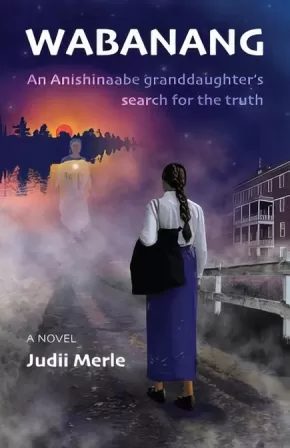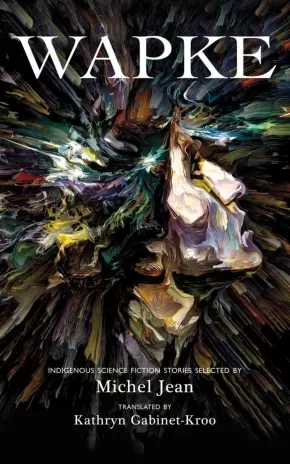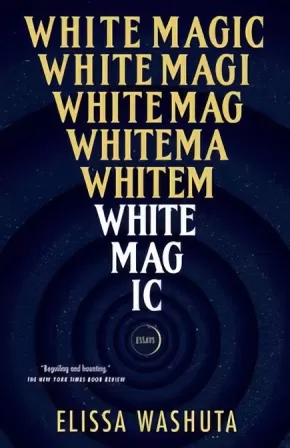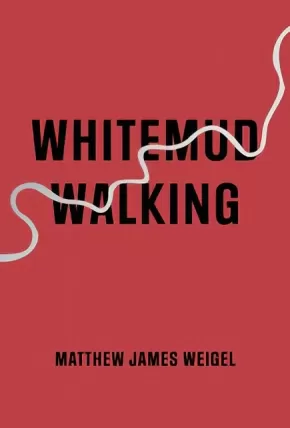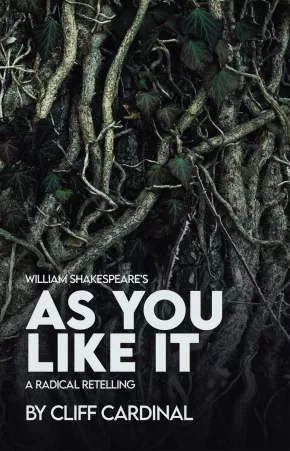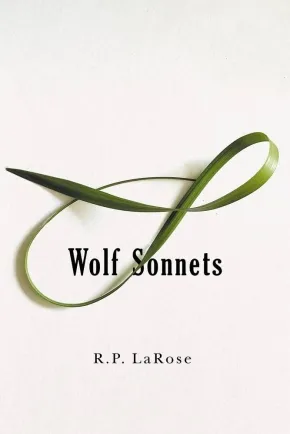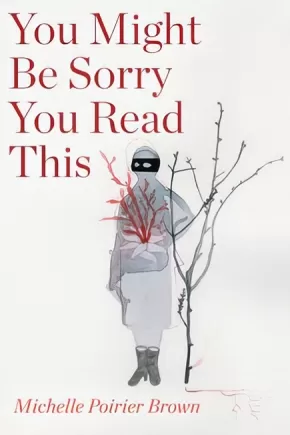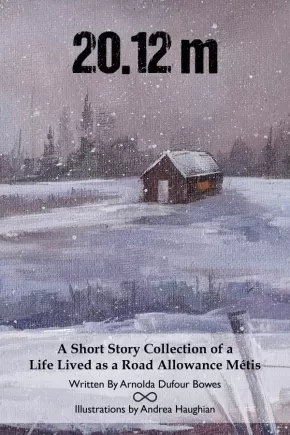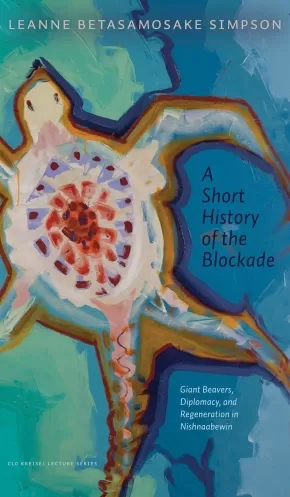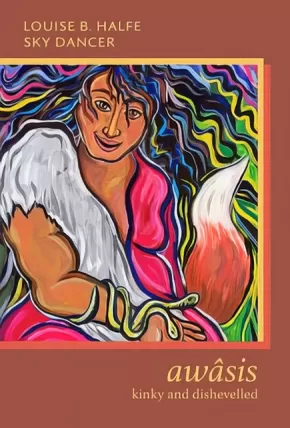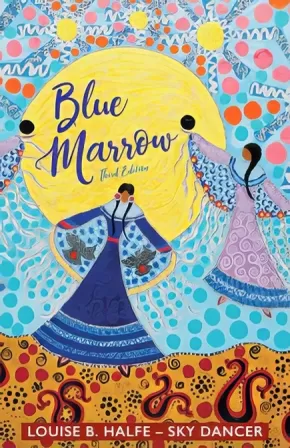
Literary Studies
151
-
165
of
325 Results;
Sort By
Go To
of 22
Trees
$24.95
Artists:
Format:
Paperback
Text Content Territories:
Indigenous Canadian; First Nations; Kwakwaka'wakw (Kwakiutl);
ISBN / Barcode: 9781988168289
Synopsis:
Synopsis:
In this final installation of the Overhead Series, Lucy Hemphill once again transports the reader with intimate revelations on identity by exploring both her personal and ancestral relationship to the forest and the quiet sentinels that root together everything. Hemphill’s prose is extraordinary in its combination of self-awareness yet unselfconscious honesty and skillful restraint, creating a sense of connection under the tangle of foliage and limb that ever-reach skyward. Masterfully illustrated by artist Michael Joyal, his evocative dendrological drawings contribute to the overall sensory and transcendent experience.
Reviews
"Lucy Hemphill has done a marvellous thing. Her book is a passkey that opens a door into the forest of her childhood. Her voice is gentle but direct, the author tells us the story of trees, their gift and our loss if we are not careful. Enhanced with Michael Joyal’s rich illustrations, Hemphill uses her Indigenous language to teach us that trees are our ancestors, living spirits, and as such we are to honour them." – Mary Barnes
Educator & Series Information
This book is part of the Overhead Series.
Additional Information
96 pages | 8.50" x 5.50" | 20 illustrations | Fiction
Wabanang, Daughter of the Stars: An Anishinaabe Novel
$17.95
Format:
Paperback
Text Content Territories:
Indigenous Canadian; First Nations; Anishinaabeg; Algonquin;
ISBN / Barcode: 9781990326066
Synopsis:
Synopsis:
In the winter of 1876, a baby is born to Anishinaabe parents along the trapline in the northern Ontario wilderness. Seventy-five years later, her granddaughter is seeking information about her grandmother's life, why her family is so fractured, and what part the residential school played in the dysfunction and estrangement which has shaped her own life. To that end, twenty—two-year-old Janey enlists the help of a hypnotist who regresses Janey back to a time when Indigenous people in Canada lived off the land, supported each other and raised their children without outside interference. But when settlers began to arrive and residential schools were established, all that changed.
In her hypnotic state, Janey is able to follow her grandmother, Wabanang (Morning Star) as a child, as a residential school student and as a medicine woman for her people. But the seeds of distrust and fear sown along the way are destroying her family. Estranged from her mother and living with her only relative, Janey must find her own way through the smoke of confusion to discover who she is.
Although this is a work of fiction. The author has drawn on her own family's history, ceremonies and visions from her own life, stories shared with her by respected elders, as well as many years of researching her own and other families.
Additional Information
232 pages | 5.51" x 8.46" | Paperback
Wapke: Indigenous Science Fiction Stories (2 in stock, in reprint)
$24.95
Format:
Paperback
Text Content Territories:
Indigenous Canadian;
Reading Level: N/A
ISBN / Barcode: 9781550969948
Synopsis:
Synopsis:
Wapke—meaning “tomorrow” in the Atikamekw language—is Quebec’s first collection of science fiction short stories by Indigenous writers. Fourteen authors from various nations and different backgrounds project us into the future through their moving, poetic, worrying, and sometimes fantastical tales, addressing current social, political, and environmental themes. From time travelling Indigenous warriors to rebellious language and knowledge keepers, from Big Trees in a lake to a human sausage factory, from living on the land to living in cyberspace, these stories provide a trans-Indigenous colonial critique. The brainchild of Michel Jean, Wapke can be read on different levels: as pure entertainment for sci-fi fans or as a stimulant to serious reflection. It offers an often-captivating social commentary that reveals how Indigenous people view the future as well as a hope that change will come.
Educator Information
This book is available in French: Wapke
Additional Information
160 pages | 5.00" x 8.00" | Paperback
Weaving Sundown in a Scarlet Light: Fifty Poems for Fifty Years
$34.00
Format:
Hardcover
Text Content Territories:
Indigenous American; Native American; Muscogee (Creek);
Grade Levels: 12; University/College;
ISBN / Barcode: 9781324036487
Synopsis:
Synopsis:
A magnificent selection of fifty poems to celebrate three-term US Poet Laureate Joy Harjo’s fifty years as a poet.
Over a long, influential career in poetry, Joy Harjo has been praised for her “warm, oracular voice” (John Freeman, Boston Globe) that speaks “from a deep and timeless source of compassion for all” (Craig Morgan Teicher, NPR). Her poems are musical, intimate, political, and wise, intertwining ancestral memory and tribal histories with resilience and love.
In this gemlike volume, Harjo selects her best poems from across fifty years, beginning with her early discoveries of her own voice and ending with moving reflections on our contemporary moment. Generous notes on each poem offer insight into Harjo’s inimitable poetics as she takes inspiration from Navajo horse songs and jazz, reckons with home and loss, and listens to the natural messengers of the earth. As evidenced in this transcendent collection, Joy Harjo’s “poetry is light and elixir, the very best prescription for us in wounded times” (Sandra Cisneros, Millions).
Additional Information
144 pages | 5.65" x 8.53" | Hardcover
Where the Sea Kuniks the Land
$21.95
Format:
Paperback
Text Content Territories:
Indigenous Canadian; Inuit;
Reading Level: N/A
ISBN / Barcode: 9781772274448
Synopsis:
Synopsis:
A “kunik” is a traditional Inuit greeting, often given to loved ones, in which a person places their nose on another’s cheek and breathes them in. Where the Sea Kuniks the Land extends that gesture of love to the Arctic landscape, in a suite of poems that celebrates the interconnectedness of people and place, past and present.
The importance of land, culture, and identity play key roles in these poems, and the collection will move readers to think deeply about colonization, intergenerational trauma, and grief.
This collection paints beautiful pictures of Arctic landscapes, love stories, and growth. It will take readers on a journey through the seasons, from fierce snowstorms to a warm field of Labrador tea flowers.
Additional Information
80 pages | 7.00" x 9.25" | Paperback
White Magic (PB)
$23.95
Format:
Paperback
Text Content Territories:
Indigenous American; Native American; Salish; Coast Salish; Cowlitz;
ISBN / Barcode: 9781953534019
Synopsis:
Synopsis:
Throughout her life, Elissa Washuta has been surrounded by cheap facsimiles of Native spiritual tools and occult trends, “starter witch kits” of sage, rose quartz, and tarot cards packaged together in paper and plastic. Following a decade of abuse, addiction, PTSD, and heavy-duty drug treatment for a misdiagnosis of bipolar disorder, she felt drawn to the real spirits and powers her dispossessed and discarded ancestors knew, while she undertook necessary work to find love and meaning.
In this collection of intertwined essays, she writes about land, heartbreak, and colonization, about life without the escape hatch of intoxication, and about how she became a powerful witch. She interlaces stories from her forebears with cultural artifacts from her own life—Twin Peaks, the Oregon Trail II video game, a Claymation Satan, a YouTube video of Stevie Nicks and Lindsey Buckingham—to explore questions of cultural inheritance and the particular danger, as a Native woman, of relaxing into romantic love under colonial rule.
Reviews
"A fascinating magic trick of a memoir that illuminates a woman's search for meaning." —Kirkus, Starred Review
"Washuta’s frank confrontations with, and acknowledgments of, unhealed wounds are validating. . . . evoking the sense of peeling open a letter from an estranged friend. A poignant work by a rising essayist."—Foreword Reviews, Starred Review
"Her prose is crisp and precise, and the references hit spot-on. . . . Fans of the personal essay are in for a treat."—Publishers Weekly
"Powerful. . . . Washuta’s essays refuse the mandate of a tidy resolution. Instead she circles around each subject, inspecting it as symbol, myth, metaphor, and reality, all while allowing her readers space to draw their own conclusions, or to reject the need for any conclusion at all. Like a stage magician, she asks readers to look again. White Magic is an insightful, surprising, and eloquent record of stories of magic and the magic in stories." —Booklist
"Washuta's story and struggles become a metaphor for the toll of colonialism on generations of Indigenous people like herself. Readers of recovery narratives, women's issues, and keenly observed social commentary will be rewarded here."—Library Journal
"White magic, red magic, Stevie Nicks magic—this is Elissa Washuta magic, which is a spell carved from a life, written in blood, and sealed in an honesty I can hardly fathom." —Stephen Graham Jones, author of The Only Good Indians
"White Magic is funny and wry, it’s thought-provoking and tender. It’s a sleight of hand performed by a true master of the craft. White Magic is magnificent and Elissa Washuta is spellbinding. There is no one else like her." —Kristen Arnett, author of Mostly Dead Things
"These pages are windows into a black lodge where Twin Peaks and Fleetwood Mac are on repeat—sometimes forward, sometimes backwards, sometimes in blackout blur. I stand in awe of everything here. What an incredible and wounding read."—Richard van Camp, author of The Lesser Blessed
Additional Information
Paperback
Whitemud Walking
$23.95
Format:
Paperback
Text Content Territories:
Indigenous Canadian; First Nations; Dene; Métis;
Reading Level: N/A
ISBN / Barcode: 9781552454411
Synopsis:
Synopsis:
An Indigenous resistance historiography, poetry that interrogates the colonial violence of the archive
Whitemud Walking is about the land Matthew Weigel was born on and the institutions that occupy that land. It is about the interrelatedness of his own story with that of the colonial history of Canada, which considers the numbered treaties of the North-West to be historical and completed events. But they are eternal agreements that entail complex reciprocity and obligations. The state and archival institutions work together to sequester documents and knowledge in ways that resonate violently in people’s lives, including the dispossession and extinguishment of Indigenous title to land.
Using photos, documents, and recordings that are about or involve his ancestors, but are kept in archives, Weigel examines the consequences of this erasure and sequestration. Memories cling to documents and sometimes this palimpsest can be read, other times the margins must be centered to gain a fuller picture. Whitemud Walking is a genre-bending work of visual and lyric poetry, non-fiction prose, photography, and digital art and design.
Awards
- 2023 Indigenous Voices Awards Co-Winner: Published Poetry in English
Additional Information
144 pages | 5.75" x 8.50" | Paperback
William Shakespeare's As You Like It, A Radical Retelling
$18.95
Format:
Paperback
Text Content Territories:
Indigenous;
Reading Level: N/A
ISBN / Barcode: 9780369103970
Synopsis:
Synopsis:
The title of William Shakespeare’s As You Like It holds a double meaning that teasingly suggests the play can please all tastes. But is that possible? With his subversive updating of the Bard’s classic, Indigenous creator and cultural provocateur Cliff Cardinal seeks to find out. The show exults in bawdy humour, difficult subject matter, and raw emotion; Cardinal is not one to hold back when it comes to challenging delicate sensibilities.
Reviews
“It is anarchic and tender and seething and raw. And important for us now.” — Istvan Dugalin, Istvan Reviews
“Unlike any other production of the play, past or future.” — Glenn Sumi, NOW Magazine
Additional Information
96 pages | 5.37" x 8.38" | Paperback
Wolf Sonnets
$19.95
Format:
Paperback
Text Content Territories:
Indigenous Canadian; Métis;
Reading Level: N/A
ISBN / Barcode: 9781550656091
Synopsis:
Synopsis:
In his commanding poetry debut, Wolf Sonnets, R. P. LaRose undoes the sonnet's classical constraints, retooling the form for current political circumstances. Packed with family lore, these poems reflect on how deeply we can trust the terms we use to construct our identity. A proud citizen of the Métis Nation, LaRose even questions his right to identify as such: "I was made in someone else's home," he writes. Wolf Sonnets is verse obsessed with names, infinity, numbers, categories, and interconnectedness. Depicting his ancestors as wolves--symbols of survival and protection--LaRose brings fresh insight to his wider poetic project: castigating the inequality, greed, and racism inherent to colonialism.
Additional Information
80 pages | 5.00" x 7.50" | Paperback
You Might Be Sorry You Read This
$19.99
Format:
Paperback
Text Content Territories:
Indigenous Canadian; Métis;
Grade Levels: University/College;
ISBN / Barcode: 9781772126037
Synopsis:
Synopsis:
You Might Be Sorry You Read This is a stunning debut, revealing how breaking silences and reconciling identity can refine anger into something both useful and beautiful. A poetic memoir that looks unflinchingly at childhood trauma (both incestuous rape and surviving exposure in extreme cold), it also tells the story of coming to terms with a hidden Indigenous identity when the poet discovered her Métis heritage at age 38. This collection is a journey of pain, belonging, hope, and resilience. The confessional poems are polished yet unpretentious, often edgy but humorous; they explore trauma yet prioritize the poet’s story. Honouring the complexities of Indigenous identity and the raw experiences of womanhood, mental illness, and queer selfhood, these narratives carry weight. They tell us “You need / only be the simple / expression of the divine / intent / that is your life.” There is a lifetime in these poems.
Reviews
"Michelle Poirier Brown’s first collection of poetry is accomplished and gripping. In her five-decade story, perceptions, denial, emotional embroilments and poignant tenderness are peeled back and examined. As the narrative builds, we encounter the sheer alchemical power of poetry. This is rare. You Might Be Sorry You Read This will change you." — Betsy Warland, Bloodroot—Tracing the Untelling of Motherloss
“One of the functions of poetry is to make you uncomfortable.” This epigraph, by Pádraig Ó Tuama, begins Michelle Poirier Brown’s debut collection—a collection that intends, unapologetically, to discomfort the reader. With unflinching precision and the exactness of a fine poet’s eye, Poirier Brown challenges her readers to encounter not only her childhood trauma but, ultimately, the power of her self—her late-discovered Métis identity, her navigation of PTSD, her unwillingness to settle for less than the truth. In the final poem, “Self-Portrait of the Poet,” she concludes, “go ahead. look. / Look as long as you like.” Invitation or command, it’s a hard look Poirier Brown offers. It may make readers uncomfortable. But they won’t be sorry.” —Laura Apol, author of A Fine Yellow Dust
Educator Information
Keywords / Themes: Identity, Trauma, Pain, Resilience, Family, Métis, Indigenous.
Table of Contents
1 The Father I Had
3 God Was a Baby
4 A Child’s Book of Holy Services
6 Her Breath on My Face
8 Other Side of the Glass
10 Effect on Her Throat
11 The House on Strathnaver Avenue
15 Mothers Who Know
16 The Thing About Snow
22 Photograph
23 Under the Covers
25 The Girls I Grew Up With Are Everywhere
27 Short Change
28 After the Test
29 Walk on the Left-Hand Side
30 5:53 PM
32 A Perspective on Women
33 Collard Greens
34 Lasts
36 I’m Allowed to Have Whatever Kind of Father I Want
38 Intimacy
39 On the Porch
41 At Times, My Teeth Chatter
about face
46 What It’s Like to Have My Face
47 Understanding My Face
52 Wake
54 A Fragile Defiance
55 Smoke
57 Winnipeg Trip
59 Commitment
61 Two Mornings, 2018
63 Boxed
64 Those I Call Friends
66 Duck Ugly
67 Beneficiaries of a Genocide
69 Slow
70 Sometimes You Learn Things Quite Late in the Game
72 Something Purple
75 what it is like to be this extreme and appear normal
78 The Other Grandmother
80 Self-Portrait of the Poet
83 addendum
87 poetic statement
90 acknowledgements
Additional Information
104 pages | 6.00" x 9.00" | Paperback
20.12m: A Short Story Collection of a Life Lived as a Road Allowance Métis
$20.00
Artists:
Format:
Paperback
Text Content Territories:
Indigenous Canadian; Métis;
ISBN / Barcode: 978-1-926795-99-7
Synopsis:
Synopsis:
20.12m: A Short Story Collection of a Life Lived as a Road Allowance Métis celebrates and acknowledges the humble living conditions of Métis Road Allowance families and it exemplifies their grit and tenacity to survive and indeed succeed in the face of so many hardships. “20.12m” refers to the narrow width of many of the road allowances throughout the prairies. This unoccupied crown land became one of the meagre options for many impoverished Métis families as so few owned land.
In this passionate coming of age book, Arnolda Dufour Bowes honours the true-life experiences of her father, Arnold Charles Dufour, a resident of the Punnichy, Saskatchewan Road Allowance community. The strength of the oral tradition has kept these stories solidly in place in Arnolda’s memory. Weaving true elements with those drawn from her own creativity, these five engaging stories share a lived experience that is little-known to most Canadians. This collection of cherished remembrances of this Métis family will also strongly resonate with many other Métis families who lived similar lives. In keeping with the family focus, Arnolda’s sister, Andrea Haughian, skillfully complements these poignant stories with expressive illustrations, which both honour and richly portray road allowance life.
Educator Information
Recommended by publisher for secondary, post-secondary, and adult readers.
Additional Information
Paperback
A Short History of the Blockade: Giant Beavers, Diplomacy, and Regeneration in Nishnaabewin
$12.99
Format:
Paperback
Grade Levels: 12; University/College;
ISBN / Barcode: 9781772125382
Synopsis:
Synopsis:
In A Short History of the Blockade, award-winning writer Leanne Betasamosake Simpson uses Michi Saagiig Nishnaabeg stories, storytelling aesthetics, and practices to explore the generative nature of Indigenous blockades through our relative, the beaver—or in Nishnaabemowin, Amik. Moving through genres, shifting through time, amikwag stories become a lens for the life-giving possibilities of dams and the world-building possibilities of blockades, deepening our understanding of Indigenous resistance, as both a negation and an affirmation. Widely recognized as one of the most compelling Indigenous voices of her generation, Simpson’s work breaks open the intersections between politics, story, and song, bringing audiences into a rich and layered world of sound, light, and sovereign creativity. A Short History of the Blockade reveals how the practice of telling stories is also a culture of listening, “a thinking through together,” and ultimately, like the dam or the blockade, an affirmation of life.
Educator Information
Subjects & Keywords: Social Sciences, Literary Criticism, Indigenous Studies; Indigenous resistance, blockades, beaver dams, Nishnaabeg storytelling, regeneration, generative resistance, Canadian Indigenous literature, land defenders, water defenders, practice of wisdom, Indigenous stories, Indigenous authors.
Recommended in the Canadian Indigenous Books for Schools collection for grades 10 to 12 for these subjects: Social Studies, English Language Arts, English First Peoples
Additional Information
88 pages | 5.25" x 9.00"
awâsis — kinky and dishevelled
$20.00
Format:
Paperback
Text Content Territories:
Indigenous Canadian; First Nations; Cree (Nehiyawak);
ISBN / Barcode: 9781771315487
Synopsis:
Synopsis:
A gender-fluid trickster character leaps from Cree stories to inhabit this raucous and rebellious new work by award-winning poet Louise Bernice Halfe.
There are no pronouns in Cree for gender; awâsis (which means illuminated child) reveals herself through shapeshifting, adopting different genders, exploring the English language with merriment, and sharing his journey of mishaps with humor, mystery, and spirituality. Opening with a joyful and intimate Foreword from Elder Maria Campbell, awâsis – kinky and dishevelled is a force of Indigenous resurgence, resistance, and soul-healing laughter.
If you’ve read Halfe’s previous books, prepared to be surprised by this one. Raging in the dark, uncovering the painful facts wrought on her and her people’s lives by colonialism, racism, religion, and residential schools, she has walked us through raw realities with unabashed courage and intense, precise lyricism. But for her fifth book, another choice presented itself. Would she carve her way with determined ferocity into the still-powerful destructive forces of colonialism, despite Canada’s official, hollow promises to make things better? After a soul-searching Truth and Reconciliation process, the drinking water still hasn’t improved, and Louise began to wonder whether inspiration had deserted her.
Then awâsis showed up—a trickster, teacher, healer, wheeler-dealer, shapeshifter, woman, man, nuisance, inspiration. A Holy Fool with their fly open, speaking Cree, awâsis came to Louise out of the ancient stories of her people, from the quiet words of the Elders, from community input through tears and laughter, from her own aching heart and her three-dimensional dreams. Following awâsis’s lead, Louise has flipped her blanket over, revealing a joking, mischievous, unapologetic alter ego—right on time.
Reviews
“There really isn’t any template for telling stories as experienced from within Indigenous minds. In her book awâsis – kinky and dishevelled, Cree poet Louise Bernice Halfe (Sky Dancer) presents a whole new way to experience story poems. It’s kinda like she writes in English but thinks in Cree. Lovely, revealing, funny, stunning. A whole new way to write!” — Buffy Sainte-Marie
“Louise Halfe knows, without question, how to make miyo-iskotêw, a beautiful fire with her kindling of words and moss gathered from a sacred place known only to her, to the Old Ones. These poems, sharp and crackling, are among one of the most beautiful fires I’ve ever sat beside.” — Gregory Scofield, author of Witness, I Am
“Louise makes awâsis out of irreverent sacred text. The darkness enlightens. She uses humor as a scalpel and sometimes as a butcher knife, to cut away, or hack off, our hurts, our pain, our grief and our traumas. In the end we laugh and laugh and laugh.” — Harold R. Johnson, author of Peace and Good Order: The Case for Indigenous Justice in Canada
“This is all about Indigenizing and reconciliation among ourselves. It’s the kind of funny, shake up, poking, smacking, and farting we all need while laughing our guts out. It’s beautiful, gentle and loving.” — Marie Campbell, author of Halfbreed (from the Foreword)
Additional Information
104 pages | 5.75" x 8.50"
Blue Marrow
$16.50
Format:
Paperback
Text Content Territories:
Indigenous Canadian; First Nations; Cree (Nehiyawak);
Reading Level: N/A
ISBN / Barcode: 9781928120254
Synopsis:
Synopsis:
The voices of Blue Marrow sing out from the past and the present. They are the voices of the Grandmothers, both personal and legendary. They share their wisdom, their lives, their dreams. They proclaim the injustice of colonialism, the violence of proselytism, and the horrors of the residential school system with an honesty that cuts to the marrow. Speaking in both English and Cree, these are voices of hopefulness, strength, and survivance. Blue Marrow is a tribute to the indomitable power of Indigenous women of the past and of the present day.
Educator Information
This is the 3rd Edition of this book. More than twenty years since its first publication, this critically acclaimed collection is available in a redesigned edition, including an all-new interview with its celebrated author, Louise B. Halfe - Sky Dancer.
Some of the text is written in Cree.
Additional Information
120 pages | 5.50" x 8.50" | paperback | 8 illustrations
Burning in this Midnight Dream
$20.00
Format:
Paperback
Text Content Territories:
Indigenous Canadian; First Nations; Cree (Nehiyawak);
Grade Levels: University/College;
ISBN / Barcode: 9781771315517
Synopsis:
Synopsis:
A deeply scouring poetic account of the residential school experience, and a deeply important indictment of colonialism in Canada.
Many of the poems in Louise Halfe's Burning in This Midnight Dream were written in response to the grim tide of emotions, memories, dreams and nightmares that arose in her as the Truth and Reconciliation process unfolded. In heart-wrenching detail, Halfe recalls the damage done to her parents, her family, herself. With fearlessly wrought verse, Halfe describes how the experience of the residential schools continues to haunt those who survive, and how the effects pass like a virus from one generation to the next. She asks us to consider the damage done to children taken from their families, to families mourning their children; damage done to entire communities and to ancient cultures.
Halfe's poetic voice soars in this incredibly moving collection as she digs deep to discover the root of her pain. Her images, created from the natural world, reveal the spiritual strength of her culture.
Originally published in 2016 by Coteau Books, Burning in This Midnight Dream won the Indigenous Peoples' Publishing award, the Rasmussen, Ramussen & Charowsky Indigenous Peoples' Writing award, the Saskatchewan Arts Board Poetry Award, the League of Canadian Poets' Raymond Souster Award, and the High Plains Book Award for Indigenous Writers. It was also the 2017 WILLA Literacy Award Finalist in Poetry. This new edition includes a new Afterword by Halfe.
Reviews
"Burning in this Midnight Dream honours the witness of a singular experience, Halfe's experience, that many others of kin and clan experienced. Halfe descends into personal and cultural darkness with the care of a master storyteller and gives story voice to mourning. By giving voice to shame, confusion, injustice Halfe begins to reclaim a history. It is the start of a larger dialogue than what is contained in the pages." --Raymond Souster Award jury citation
Additional Information
104 pages | 5.75" x 8.50" | 8 illustrations
Sort By
Go To
of 22




